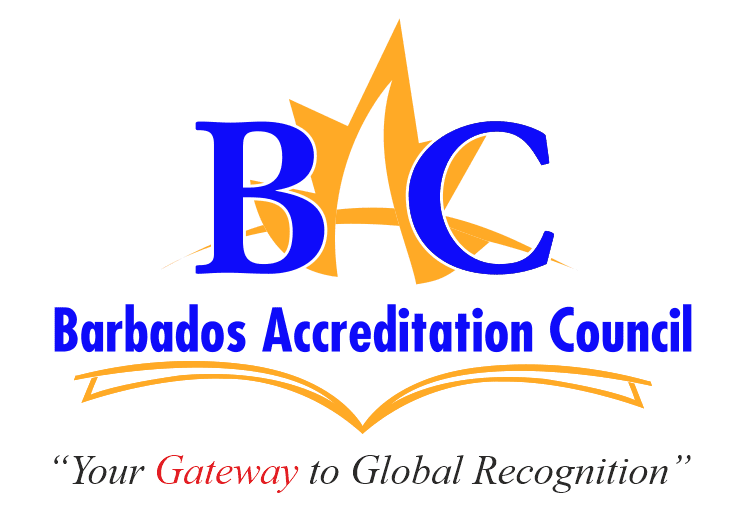Scores of tertiary education and training providers in Barbados and organizations such as the Caribbean Examination Council and the Technical Vocational Education and Training Council, are now better prepared to participate in a new Human Resource Development (HRD) initiative aimed at ensuring that formal, informal, and non-formal learning is certified and recognised locally and overseas.
This ambitious initiative is the Barbados Qualifications and Credit Framework (BQCF). Recently, a series of Capacity Building Workshops were held and attracted some 50 public and private education and training institutions offering learning in a wide array of areas such as information technology, theology, civil aviation, insurance, beauty, foreign languages, engineering and building, and music.
In speaking about the framework, Valda Alleyne, Executive Director of the Barbados Accreditation Council, which is responsible for implementing the BQCF, described it as “new way of delivering education and training.” She explained that it was a mechanism which would recognise people’s skills and qualifications, irrespective of how and where they were acquired; provide for a system of “credits” for those qualifications; and set out “levels” against which qualifications should be developed and more importantly, be recognised, not only in Barbados but in other countries.
Learners to save time, effort and money
“The BQCF will help learners understand how their qualifications relate to other qualifications in Barbados. It seeks to provide a mechanism whereby not just formal but other forms of learning is recognised and certified, including those DIY skills learnt just by experience, for instance,” Ms. Alleyne added.
The Executive Director noted that learners would now save time, effort and cost because they would be able to more easily transfer credits they had gained from their learning experiences to access further learning. “Their qualifications will become more mobile and transferable,” she explained.
During the workshops participants received detailed information on how to register as providers and the requirements for registering as providers with awarding body powers. The sessions also emphasised the importance of designing programmes or courses based on learning outcomes, that is, what the learner is expected to be able to do on completion of the programme or course of study.
The workshops then took participants through a practical exercise after which they were better able to determine how ready they were to meet the regulatory requirements that the BQCF would require.
Framework to help providers offer training which meets labour market needs
Regarding benefits for tertiary educational providers, the BQCF will enhance their expertise in delivering competency-based education and training that is aligned to recognised standards, as well as better allow them to provide practical and timely education that meets the needs of the Barbados labour market.
Dr. Taran Handa, Deputy to the Vice Chancellor at Washington University of Barbados, received insights regarding how the medical school could improve its processes during the workshop. “In terms of meeting the registration requirements for theBQCF, I believe we will strive to document each and every policy and make them available for our target audience. We’ll also look to increase security of the institutional and educational property.”
In noting the importance of the framework for Barbados, Dr. Handa referenced his learning experiences overseas. “Europe has a particular framework with credits. If we have a framework here that is based on credits it makes it easy for cross-country equivalency of qualifications…”
He added that students would have the confidence that they were receiving a qualification that was up to standard and had global reach. “They won’t have to do bridging courses and will meet most of the international standards…. A common framework helps.”
Lisa Roberts, teaching assistant at Nikita’s School of Cosmetology agreed. “Given how technology and the world is advancing it is good to have a baseline for everyone that can be used to move throughout different countries and not just Barbados.
“We often have cases where people migrate here but have issues whereby they are not able to see how the courses they’ve completed or started would match what’s needed here. With the framework you can see your courses mapped to where you’re going. It’s a step in a good direction.”
Ms. Roberts, who described the workshop as “very informative”, added that those with years of experience but without certification would be able to benefit from the framework. “Not having a “paper” qualification, someone might think they’re at Level 1 or 2 without knowing they might actually be at Level 5, 6 or higher. They may only have to do a Master’s or doctoral degree instead of an associate or Bachelor’s degree.”
January 2019 rollout
The Barbados Qualifications and Credit Framework is expected to be rolled out in January 2019. It falls under Pillar 2 of Barbados’ Human Resource Development (HRD) strategy and seeks to develop a qualifications framework which is internationally-recognised. Once the framework is rolled-out, the Barbados Qualifications Register will indicate those tertiary educational providers that offer recognised qualifications. This will be available online.
Currently, five education and training providers – Barbados Community College, Samuel Jackman Prescod Institute of Technology, Barbados Vocational Training Board, Career Development Institute, and Allied Health Institute – are taking part in the pilot phase. During this phase, the pilot providers are testing and using the BQCF processes, procedures, operations and documents. By the end of the pilot phase, these providers would have made one of their qualifications compliant with the requirements of the BQCF.
About the Barbados Qualifications Framework
The BQCF is an eight-level comprehensive qualifications framework and it describes the learning to be achieved at each qualification level. It encompasses all forms of learning and encourages lifelong learning with the result being that all forms of learning will be valued and recognized locally and internationally.
For more information contact:
Barbados Accreditation Council at (246)535-6740 or info@bac.gov.bb

